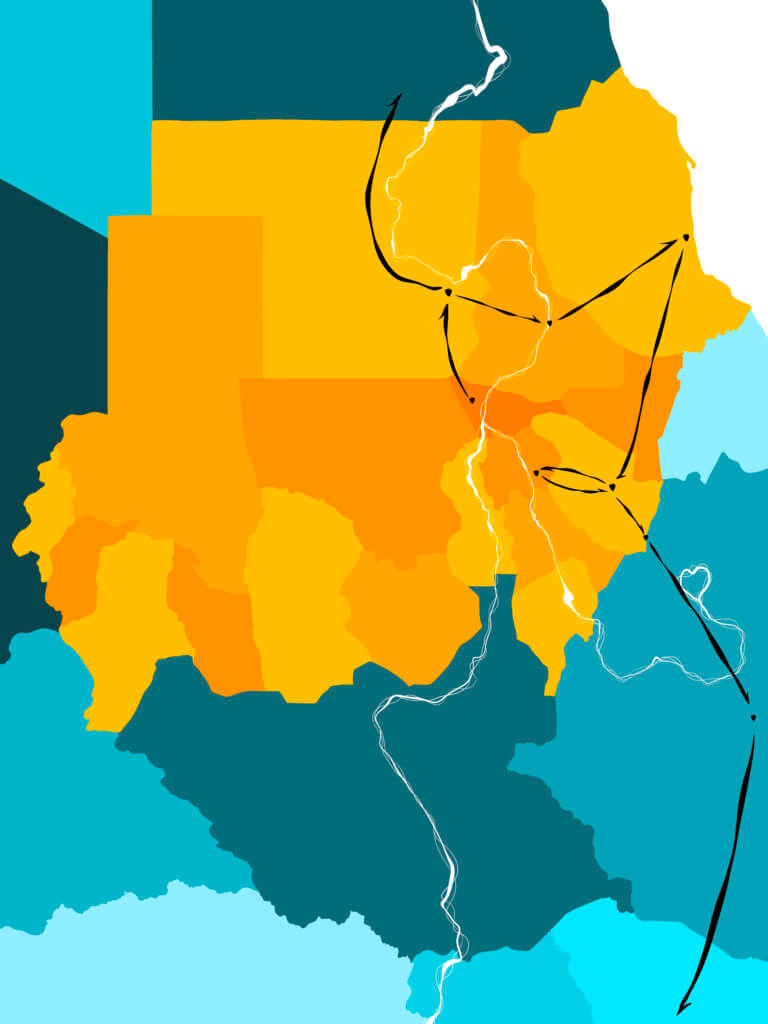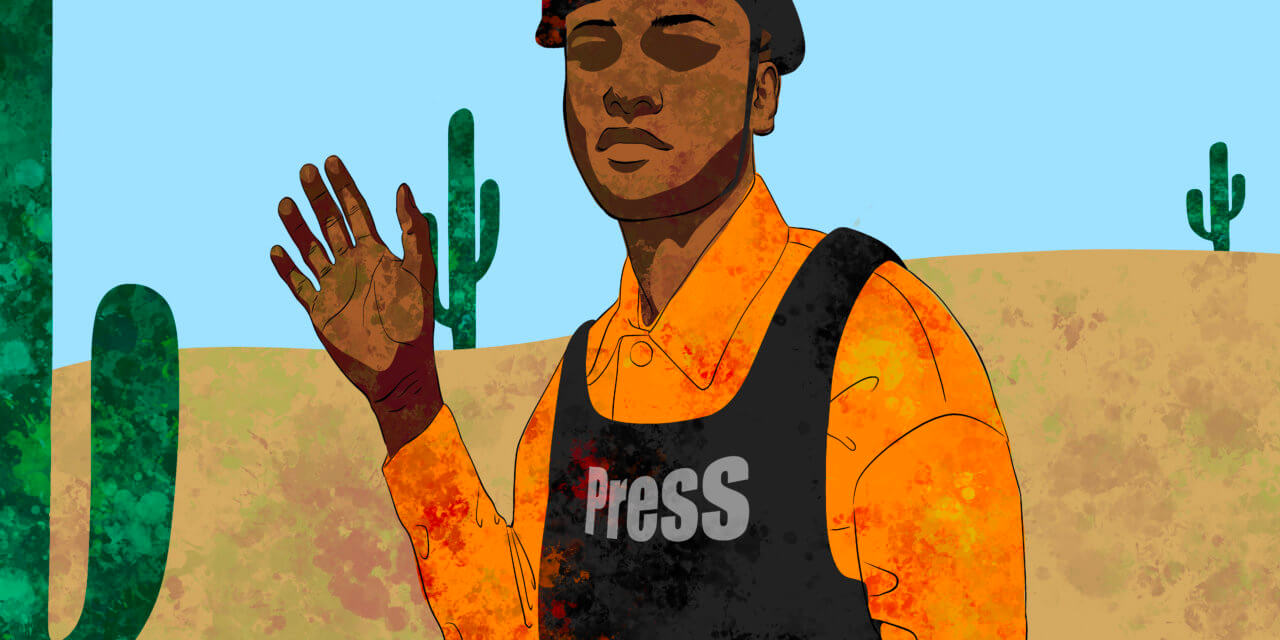In the heart of Nairobi’s bustle, Sudanese journalist “A.B.” finds echoes of Omdurman, as the diaspora’s collective yearning for reunion grows amidst the scattered lives wrought by war. His daily odyssey through memories and newsfeeds is a stark reminder of the resilience required when home is a feeling, not just a place.
Every morning since June, Sudanese journalist “A.B.” has been awakened by the shouts of pedestrians and the honking of buses in a bustling neighbourhood of Nairobi, Kenya’s capital.
The conversations around him are predominantly in Swahili, a language from which he’s picked up numerous words during his three-month stay. These familiar sounds prompt him to open his window, giving him a glimpse into this new world he found himself in after fleeing the war in Sudan.
Interestingly, the neighbourhood in Nairobi bears a striking resemblance to his old life in Omdurman, Sudan. The culture, the daily hustle and bustle—only the language, faces, and landmarks differ. This resonates with the lived experiences of many in the diaspora: different place, similar struggles.
Each day, after absorbing the sights and sounds of his new surroundings, “A.B.” retreats to his smartphone. He scrolls through photos of his extended family, now scattered across different regions, and follows news from Sudan. Yet, the constant stream of news only seems to amplify his homesickness, bringing forth images too distressing to bear.
With the war’s outbreak, many journalists, including “A.B.”, lost their primary sources of income. He now freelances and edits for an online site that operates sporadically. Avoiding the news is not an option; it’s how he makes a living, enabling him to support his wife and two children, who had to flee to Cairo, Egypt.
Even though “A.B.” was well-versed in the political tensions, the actual onset of war was beyond comprehension. For many Sudanese, including those without substantial savings, life became a game of survival.
The vicinity of “A.B.’s” home became a battleground, and amidst the chaos, his main concern was his family’s safety and sustenance. Gathering enough provisions for even a month felt like a luxury.
With help from his employer, “A.B.” managed to secure funds to escape by land to Egypt. On his departure day, he had initially intended to stay behind to work, but a last-minute change of heart saw him leave with his family.
Due to visa restrictions, he couldn’t accompany them to Egypt, so he set off with just a backpack and his laptop, uncertain of his next destination.
The most heart-wrenching moment was when he had to part ways with his family. His younger child cried, while his elder one asked, “Where are you going, Dad?”. All he could offer was a silent goodbye.

The Junction: From Omdurman to Cairo, and Nairobi. (Illustration: Medo Kagonka)
Their separation point, aptly named “The Junction”, saw “A.B.” heading east to Marawi, the epicentre of the conflict, while his family travelled north. This moment mirrored the narrative in Tayeb Salih’s “Season of Migration to the North”.
The bus journey took him through areas heavily patrolled by the Rapid Support Forces (RSF). Life in these regions seemed to carry on, albeit amidst the visible presence of armed people.
“I haven’t reunited with my family since then. I find myself navigating East Africa, my possessions on my back, the weight of the war ever present,” shares “A.B.”, leaving his story yet to find its conclusion.
His journey has taken him through various checkpoints, marking his long escape from the turmoil back home in Omdurman. The hope for a reunion remains, a sentiment shared by many in the diaspora.
______
This story was produced by Media in Cooperation and Transition (MiCT) and the North Africa Media Academy (NAMA), in collaboration with the Al Adwaa Media and Journalism Services Centre, and financed by the German Federal Ministry for Economic Cooperation and Development (BMZ). The views expressed in this publication do not represent the opinions of MiCT, NAMA, Al Adwaa, or BMZ.

